Interview
Laurent Gbagbo heads back to Ivory Coast after a decade away in a homecoming made possible after the International Criminal Court confirmed their “Not Guilty” verdict in the case related to the 2011 post-electoral violence.
He had been on trial since 2011 for the post-electoral violence in his country. Now, with his return, a lot is at stake.
Africanews journalist Serge Mankou had an exclusive interview with Mr. Alafé Wakili, the Executive Manage of L'Intelligent d'Abidjan.
Serge Mankou: Thank you for agreeing to talk to us. So first of all, Laurent Gbagbo is as we said coming to Ivory Coast. The date of his return was announced unilaterally by his clan whilst negotiations with the government were still underway. The government was pretty much presented with a done deal?
Mr. Alafé Wakili: The date was made public and he was presented with a done deal. And he(President Ouattara) took note of it, so we can say that yes, he was presented with a fait accompli, but he was expecting it.
Serge Mankou: What could this return of Laurent Gbagbo mean for Ivorian President Alassane Ouattara?
Mr. Alafé Wakili: Perhaps a defeat, because one wants to attribute to him a desire to remove Laurent Gbagbo permanently or eternally from national political life and also from his country. But I don't think that these are his long-term intention.
Serge Mankou: For supporters of the former president, his return is an asset for an easing of tensions in the Ivory Coast. How could Laurent Gbagbo's presence in the country help, say, with reconciliation?
Mr. Alafé Wakili: Sure it can help achieve reconciliation because feelings of exclusion, injustice, frustration, will be reduced, but at the same time, it calls for more responsibility and from there, to play their part in this process of appeasement. And so, the discussions will be more or less direct and we will no longer be able to say "Gbagbo, said... president Gbagbo said..." There will still be emissaries, collaborators. But at some point, it will be possible for either President Bédié or President Ouattara, or his supporters, both of them, to meet with President Gbagbo and talk to him directly. So the situation won't be as tense.
Serge Mankou: Laurent Gbagbo is coming home after being sentenced to 20 years in prison in 2018 for the robbery of the National Agency of the Central Bank of West African States. The victims of the 2010-2011 political crisis are still demanding justice. How can you have this and this need for national reconciliation?
Mr. Alafé Wakili: Regarding the victims, there is indeed a need to focus more on their fate by finding sustainable mechanisms for satisfaction. There is a need to address the issue in a lasting and profound way, whether one is is a supporter of President Laurent Gbagbo or else. With regard to the sentence, I think that we must take into account the general context of appeasement and take steps in that direction. Of course, there are three levels: without the current procedure, there is no attempt to execute the court decision. The judges do not issue arrest warrants. Then, the politician can either grant a pardon or pass an amnesty law.
Serge Mankou: Why is this return interesting or important for the African continent?
_Mr. Alafé Wakili: Well, what is important is that he is this African who went to The Hague, who came out and to whom we come to Abidjan to ask "what did you do, what happened" and who tells his story and who goes around Africa to talk about peace and reconciliation, to talk about the dignity of the people of Africa. Faced with all these issues, he should not be a man of clans stuck in a power struggle. _
He is the man to whom we must come to be the wise man in Côte d'Ivoire, the wise man in Mali, who goes to Mali not as President of Côte d'Ivoire, but as an African who has won a battle who goes to Mali to speak to the Malians. This is the Laurent Gbagbo that I want to see, the Laurent Gbagbo that I dream of for Africa.




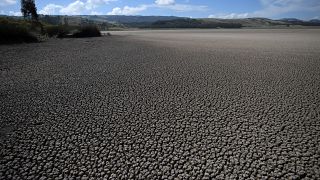
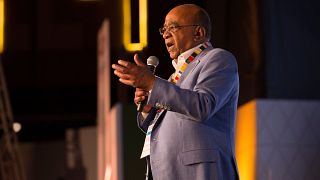
![Didier Drogba: We can have a stable Africa [Exclusive]](https://static.euronews.com/articles/stories/05/58/58/54/320x180_cmsv2_500eef76-b395-5e96-856c-4c9d20a4114f-5585854.jpg)
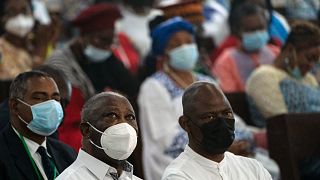
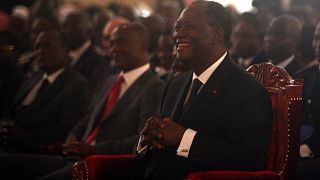
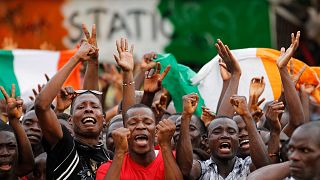



01:00
Pix of the Day: July 15, 2025
Go to video
First Malaria treatment for babies approved
02:21
Ivorian diaspora in Paris demands free and inclusive elections ahead of October vote
01:30
Ivory Coast opposition call for election reform ahead of vote
00:31
Mauritanian economist elected African Development Bank president
01:02
Tidjane Thiam Confirmed as PDCI President by Ivorian Court